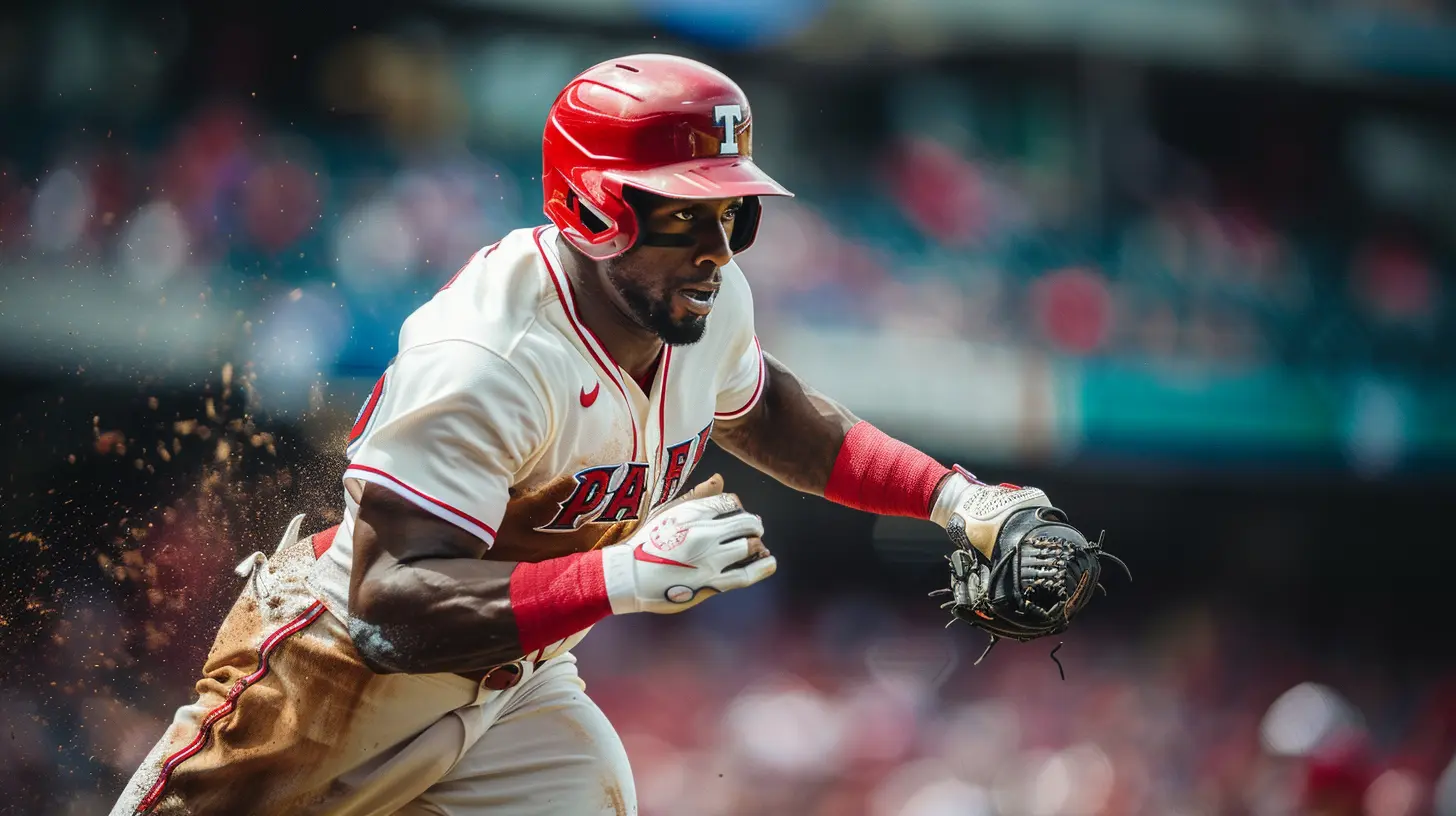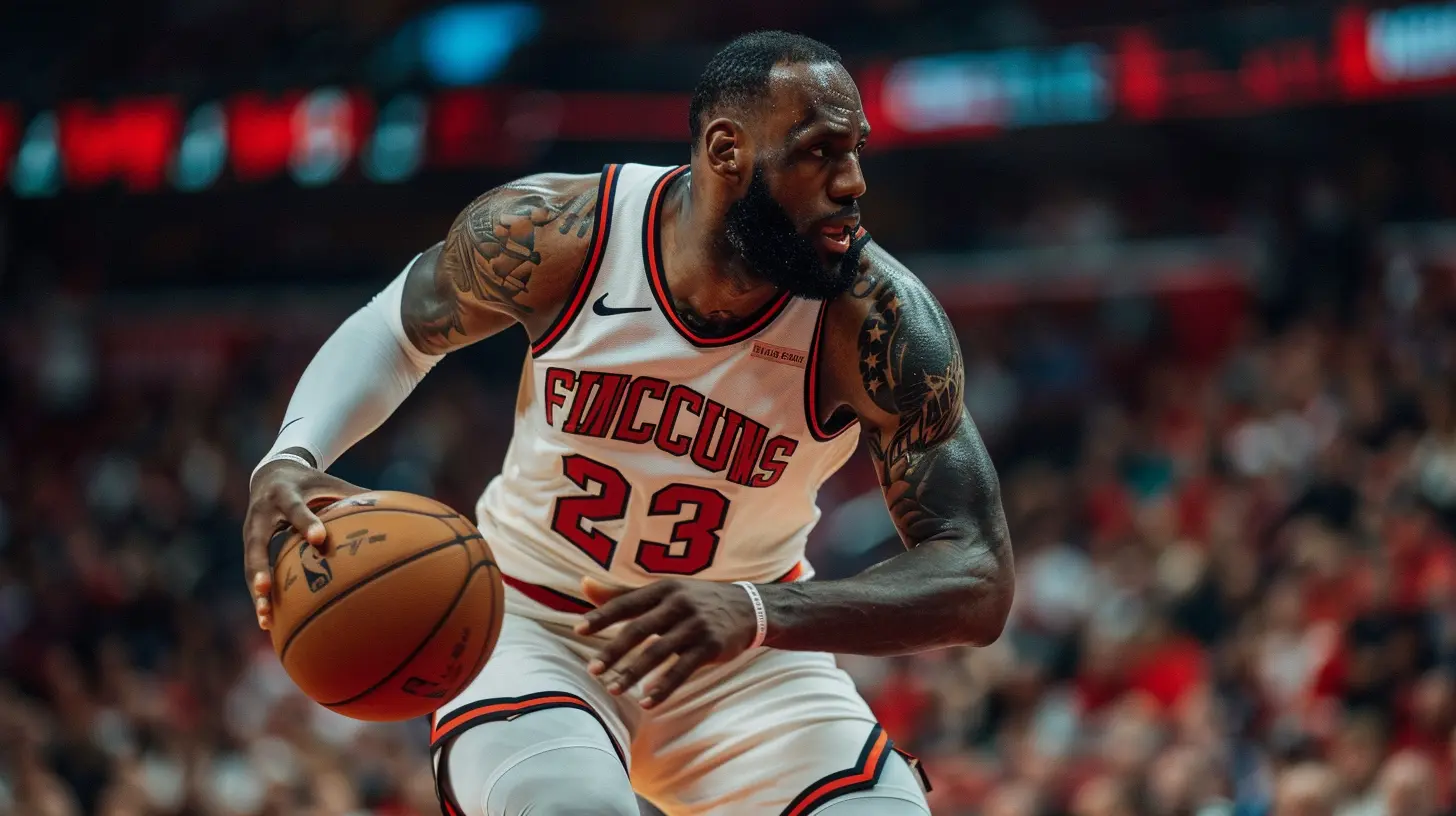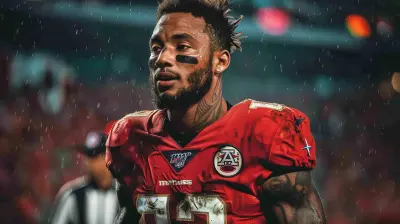The Market for Superstars: Why Some Players Are Always on the Trading Block
14 November 2025
Picture this: You're a die-hard fan of a team, and just when you're getting used to seeing a particular star player in your team's colors, boom! A trade happens. Your favorite player is packing their bags and heading off to another city. It feels like a gut punch, right? But here's the thing: trades, especially involving superstar players, are pretty much inevitable in the world of professional sports. Some players seem to always find themselves in trade talks, like they're constantly living with one foot out the door.
But why is that? Why do certain players seem to always be in trade rumors, even when they're playing at a high level? We're going to dive deep into this phenomenon, break it down into bite-sized chunks, and make sense of why some of the biggest names in sports are constantly on the trading block.

Why Are Superstars on the Trading Block?
1. The Business Side of Sports
Let’s be real—sports isn’t just about athletic competition anymore. It’s a multi-billion-dollar business. The front office isn't just thinking about how well a player performs; they're also considering salary caps, contracts, ticket sales, and even merchandise. A superstar’s worth isn’t just dictated by points scored or championships won. It’s also about how much money they generate off the court, field, or rink.Superstars come with hefty contracts. When a team is facing salary cap restrictions or financial struggles, moving a high-earning player becomes a tempting option. It’s like when you’ve got a fancy sports car that costs a fortune to maintain. Sure, it’s fun to drive, but if it’s draining your bank account, you might consider selling it. The same logic applies with superstar trades. Teams might love what these players bring on game day, but managing their massive contracts can sometimes be too much to handle.
2. The Grass is Always Greener
Ever heard the saying, "The grass is always greener on the other side"? Well, that’s often the mentality when it comes to trading superstars. Teams sometimes believe they can get a better deal by trading away their best player for multiple assets, like draft picks or younger talent with potential. It's like trading in your one expensive diamond for a handful of smaller diamonds that might shine just as bright in the future.For some organizations, it’s all about rebuilding or retooling. If a team isn’t winning, they might think, “Hey, maybe it’s time to shake things up.” Trading their superstar can bring in fresh faces, new energy, and a shot at long-term success.
3. The Superstar Dilemma
Here’s the catch: being a superstar can sometimes be a double-edged sword. On one hand, you're a prized asset. On the other, you're the most tradable asset. Let’s face it, not every team has the luxury of having multiple star players. So, when things aren’t going well, the first move a front office considers is trading their top guy. Why? Because they’re the ones with the highest value.It’s like owning a luxury yacht. If you’re in financial trouble, you’re not going to sell your dinghy to fix things—you’re selling the yacht. Superstars, as valuable as they are, can be the luxury yachts of their teams. When things go south, they’re often the first to be dangled in trade discussions.
4. The Power of Player Agency
Nowadays, players have more power and control over their careers than ever before. Player agency, the ability for players to dictate where they want to go and when, has become a huge factor in trade scenarios. High-profile superstars, especially in leagues like the NBA or NFL, have the leverage to request trades when they feel like the situation with their current team isn’t favorable.Whether it’s about chasing a championship, playing in a bigger market, or teaming up with other stars, superstars can push for a move. It’s not just about money anymore—it’s about legacy, lifestyle, and personal preferences. When a player wants out, the team is often forced to make a move to avoid a messy situation.
5. The Pressure to Win Now
Sports is a results-driven business. The pressure to win, and to win now, is higher than ever. Fans, owners, and sponsors aren’t patient. If a team underperforms for even a season or two, there’s a clamor for change. And what’s the quickest way to shake things up? You guessed it—trading a superstar.It’s like switching gears in a car. If you’re stuck in neutral, you’re not going anywhere. Trading a star player can help a team shift into a different gear, whether that’s by bringing in new players or freeing up cap space for future acquisitions. Teams are constantly balancing the short-term need to win with long-term planning, and that often leads to big trades.
6. The Rise of Analytics
Analytics have become a huge part of the decision-making process in sports. Teams now have access to more data than ever before, and they use that data to evaluate player performance. But here’s the kicker—sometimes, the numbers don’t favor the superstars.A player might be putting up big stats, but if the analytics show they’re not contributing to wins in the way the team needs, they could find themselves on the trading block. Teams are no longer just relying on the eye test; they’re looking at advanced metrics to determine a player’s true value. And if the numbers say a player isn’t worth their hefty contract, the front office might start shopping them around.

Famous Superstar Trades That Shocked the World
Now that we’ve broken down the reasons, let’s take a stroll down memory lane and look at a few blockbuster trades that left fans scratching their heads.1. Wayne Gretzky (NHL)
"The Great One" being traded? It’s hard to believe, but in 1988, Wayne Gretzky was traded from the Edmonton Oilers to the Los Angeles Kings. This was more than just a hockey trade—it was a seismic shift in the sports world. The Oilers were a dynasty, and Gretzky was the face of the franchise. But the financial pressures behind the scenes pushed the Oilers to make a move. The Kings, on the other hand, wanted to make a splash and elevate hockey’s profile in the U.S., and acquiring Gretzky did just that.2. Herschel Walker (NFL)
The 1989 trade of Herschel Walker from the Dallas Cowboys to the Minnesota Vikings is one of the most lopsided trades in NFL history. The Cowboys received a ridiculous haul of players and draft picks in exchange for Walker, a trade that ultimately helped them build a dynasty in the 1990s. The Vikings, on the other hand, didn’t get the championship they hoped for. This trade is a perfect example of a team betting big on a superstar, only for it to not pan out as expected.3. James Harden (NBA)
In 2012, the Oklahoma City Thunder traded James Harden to the Houston Rockets. At the time, Harden was coming off a Sixth Man of the Year award and had helped the Thunder reach the NBA Finals. Many questioned the trade, wondering how the Thunder could let such a talented player go. The reason? Money, plain and simple. The Thunder didn’t want to pay the luxury tax for Harden’s upcoming contract extension, so they shipped him off. Since then, Harden has gone on to become one of the best players in the NBA.4. Cristiano Ronaldo (Soccer)
In 2018, Cristiano Ronaldo, one of the greatest soccer players of all time, made a shock move from Real Madrid to Juventus. After winning multiple Champions League titles and becoming a global icon at Madrid, why did this happen? Ronaldo wanted a new challenge, and Real Madrid saw an opportunity to cash in on their aging superstar while his value was still sky-high.
What Does the Future Hold for Superstar Trades?
The market for superstars is as volatile as ever. Teams are constantly weighing the pros and cons of holding onto a star player versus trading them for future assets. As financial pressures, player empowerment, and analytics continue to shape the sports landscape, we’re likely to see even more blockbuster trades in the years to come.But here's the thing: the trading block can be a double-edged sword for superstars. While being in demand is flattering, it also means living with the uncertainty of constantly being on the move. For fans, it’s a rollercoaster ride of emotions, but for front offices, it’s just another day at the office.
At the end of the day, the market for superstars will always be there because teams are always on the lookout for the next big move that will push them over the edge. It’s a high-stakes game of chess, and sometimes, the biggest pieces get sacrificed for the greater good.

Conclusion
So, why are superstars always on the trading block? It’s a mix of business decisions, financial constraints, player power, and the constant pressure to win. Teams are always looking for the right balance between short-term success and long-term sustainability, and sometimes, that means moving on from even their biggest stars.In the world of professional sports, no one is untouchable. Even the biggest names can find themselves packing their bags for a new destination at the drop of a hat. As fans, we might not always like it, but it’s just the reality of the game.
all images in this post were generated using AI tools
Category:
Player TradesAuthor:

Easton Simmons
Discussion
rate this article
1 comments
Paige Brooks
This article brilliantly highlights the dynamics of the sports market, illustrating how superstar players often find themselves on the trading block. It’s a fascinating exploration of value, demand, and the strategies teams employ to maintain competitive rosters and maximize their investment.
November 14, 2025 at 4:20 AM

Easton Simmons
Thank you for your insightful comment! I'm glad you found the exploration of player dynamics and team strategies engaging.


